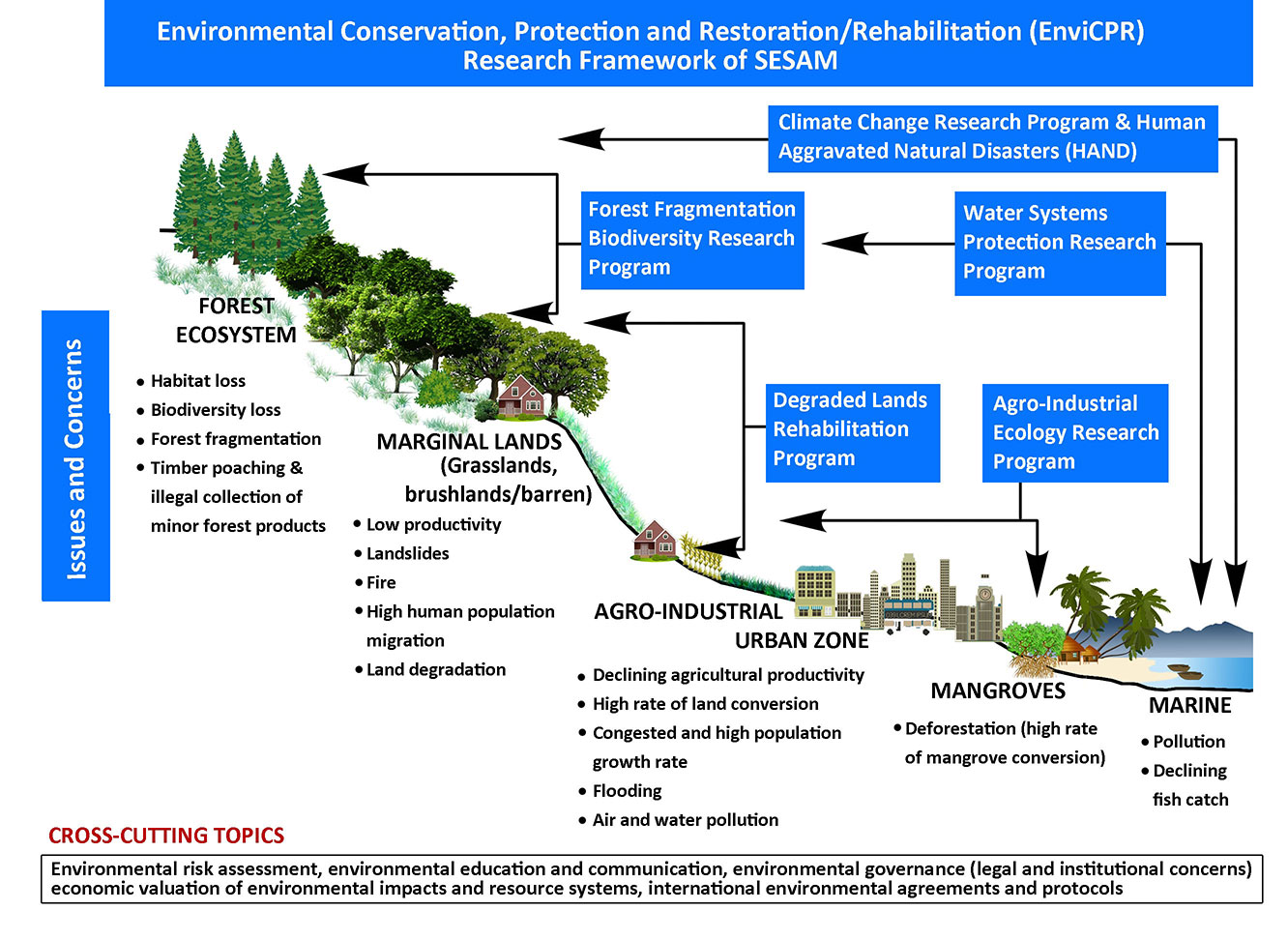Overview
As an active environmental research institution of the university, SESAM complements the academic programs. To optimize the presence of a substantial number of graduate students in Environmental Science, their graduate research program and thrust are anchored on the research thrusts of the School. SESAM needs the cooperation of environmental scientists of the university in the conduct of research to advance understanding and generate scientific information about environmental issues. To ensure effective delivery of research outputs, SESAM is developing a strong public information section to take charge of projecting to the local and national media research reports that may be useful in formulating options to address environmental problems.
Research Framework

Research Agenda
Promote environmentally sound, efficient and sustainable production technologies and ystems (e.g. environmental resources flows, materials and energy flows, crops/livestock-environment interaction).
Develop and test appropriate methodologies for integrated assessment and management of landscapes and seascapes (land, marine, coastal, lake and river ecosystems, vulnerability, resilience and risk assessments focused on small islands and archipelagic states in Asia and the Pacific).
Understand the dynamics of pollution, human society’s adaptation and mitigation (e.g. water and air pollution, land degradation/desertification, climate change adaptation and mitigation ).
Aid policy makers, local government units and the public concerning critical environmental issues (e.g. Laguna Lake and Pasig River rehabilitation; Watershed, Mining and Agriculture issues).
Promote industry-academe linkages to focus on how market based instruments can be instituted to enhance environmental management systems of the sector (Strategic Environmental Impact Assessment and Environmental Risk Assessment in regional and national planning, environmental management systems (EMS), environmental audits, carbon credits and marketing in the framework of ISO 14001, life cycle analysis).
Undertake research on environmental policies and implications; e.g. Clean Air Act, Clean Water Act, Charter Change and the environment, Water governance, coastal and marine law enforcement and regulation, Multilateral Environmental Agreements (MEAs), JPEPA, etc.
Strengthen the capabilities of environmental sector at various levels in environmental planning, sustainable land use planning, disaster risk management and mitigation with the use of state of the art environmental management tools.
Enhance understanding of the interactions of population, health and environment among resource managers, national and local government executives and the public.
Enhance environmental advocacy among the public officials, development agencies and the general public on the need for environmental resources conservation and management.


